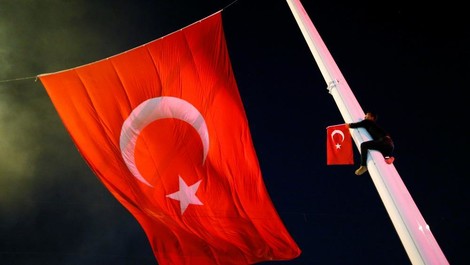Your podcast discovery platform
Curious minds select the most fascinating podcasts from around the world. Discover hand-piqd audio recommendations on your favorite topics.

piqer for: Global finds Globalization and politics Technology and society
Turkish journalist, blogger and media expert. Writes regular columns for The Arab Weekly and contributes to Süddeutsche Zeitung, El Pais and the Guardian. An European Press Prize Laureate for 'excellence in journalism' in 2014, Baydar was awarded the prestigious 'Journalistenpreis' in Germany by Südosteuropa Foundation in February 2018.
Turkey's 'Global Purge' Against Dissidents Sets A Contagious Example For The World
The shocking extent of the mass firings and arrests following the botched coup in Turkey did not remain limited to its territory. Soon after the declaration of the emergency rule on July 20 2016, the Turkish government launched a hard-line manhunt against its perceived enemies, which spread to at least 46 countries across four continents. Tens of thousands of passports were revoked, and the Turkish government succeeded in its external campaign to arrest, deport and rendition of hundreds of Turkish citizens — even those who were under UN protection.
The ongoing campaign is, by the measures of a mid-scale country, remarkable in its speed, magnitude, and persistence.
It demonstrates how normal what the political scientist Dana M. Moss calls “transnational repression” has become, and how its widespread application has demolished the hope that the globalization of a liberal order would result in democratic consolidation.
Soon after the failed coup the measures have evolved into what the author of this powerful essay calls as the 'global purge' and went far beyond the followers of Gülen Movement — or 'Gülenists — to contain all the social and political groups that dissent the AKP rule under President Erdoğan. It sent shockwaves across the diaspora of Turkey.
What is so concerning about Turkey’s global purge is that transnational repression is increasingly woven into the fabric of the international order ... Our globalized era affords nation-states new and cheaper opportunities to pursue exiles, dissidents, and regular citizens wherever they may be, through monitoring and surveillance, international law enforcement mechanisms such as Interpol, and collaboration between security services. Turkey’s abilities in this department may not match those of China, Russia, or the United States, but as the global purge shows, they can get results when applied bluntly.
Schenkkan, a project director with Freedom House, raises the alarm to higher levels in this powerful and gloomy essay.
